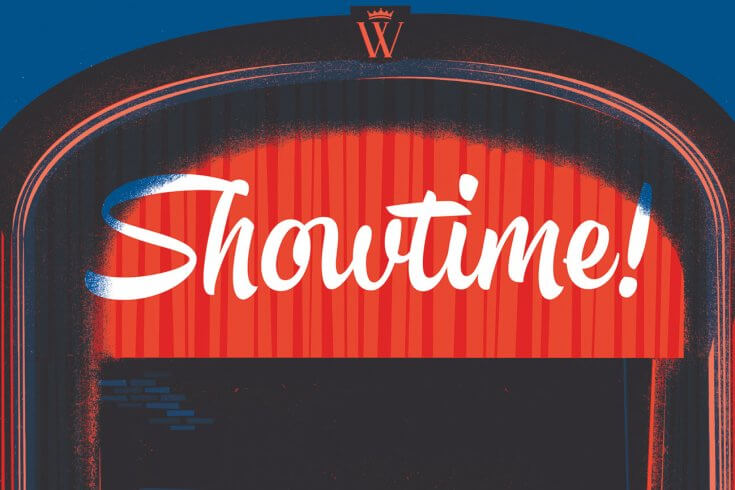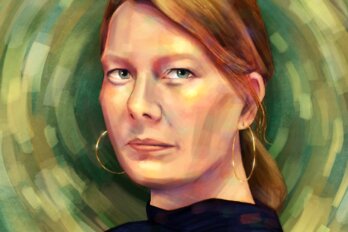Illustration by Pascal Blanchet[/caption]
“Modestine,” by Lynn Crosbie
In her sinuous and sinister poem “Modestine,” Lynn Crosbie recounts a family visit to the long-term care centre where her father lies ill. Although the text doesn’t reveal the specifics of his medical condition, there is no escaping the emotional condition the poem evokes. Slipping back and forth in time, it demonstrates the pain that comes with cataloguing the progression of a degenerative disease. It also shifts back and forth between the fictional world of Travels with a Donkey in the Cévennes—the novel that the brother reads aloud—and the real-life details of the father’s decline and the poet’s anguish at being unable to intervene. The lines may resemble prose sentences in their length and rhythm, but this is deceptive. Crosbie uses the poetic line with great skill, resisting periods throughout, interrupting and crossing back over her own thoughts to powerful effect. The reader follows the movements of a mind that is unable to rest; whenever a line seems to move toward completion, the poem denies this relief and pivots back, relentlessly, like Robert Louis Stevenson’s donkey, who is beaten and beaten again but still stands.
“i am graffiti,” by Leanne Simpson
An activist, academic, writer, and speaker, Leanne Simpson is of Michi Nishnaabeg ancestry and is a member of Alderville First Nation. Pronouncing her the inaugural RBC Taylor Emerging Writer, novelist Thomas King praised Simpson’s “uncommon ability to manage an impressive range of genres, from traditional storytelling to critical analysis, from poetry to the spoken word, from literary and social activism to songwriting.” Her work explores resistance at both the personal and community level, and celebrates the act of defiance that is her very being. In “i am graffiti,” she speaks directly to the forces of erasure—of status, culture, and history—and wryly points out that she is still here. She compares herself to graffiti, which enacts a sort of claim over the public spaces it marks, and uses repetition to illustrate the cyclical nature of cultural offence and personal reassertion in the face of it. Simpson uses the passive voice in the refrain “mistakes were made” to echo the hollowness of official apologies and ridicule the tendency of those in power to distance themselves from the legacies of their offices.
“Dream Jobs,” by Suzanne Buffam
This poem makes me laugh, but it also has a subtle shadowy undercurrent that hints at the speaker’s sense of her own fading promise (in particular, the idea of an “Ingenue Emeritus” kills me). “Dream Jobs” is an excerpt from a book-length work in which the poet examines what it means to be a privileged woman with a role to play, using Sei Shonagon’s The Pillow Book as a model. (Shonagon was a Japanese court lady born around 966, and her work, filled with lists and finely wrought scenes of her experiences at court, provides the most complete documentation of life in the Heian period.) Buffam’s lists and meditations on her struggles with insomnia and attempts to keep writing through early motherhood are filled with dark humour and self-mockery. I love how “Dream Jobs” plays with the idea of form (it’s a sonnet), with lines pared down as short as possible in order to convey the poet’s state of mind.





